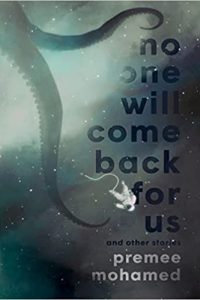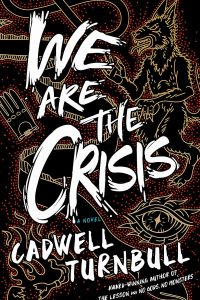Russell Letson reviews Nancy Kress
The Best of Nancy Kress, Nancy Kress (Subterranean 978-1-59606-721-9, $45.00, 558pp, hc) September 2015. Cover by Thomas Canty.
 Theodore Sturgeon used to append to his autographs a Q-pierced-by-an-arrow glyph that stood for ‘‘Ask the next question’’ – advice that would seem to be particularly apt for writers of science fiction. The phrase ought to be the motto on Nancy Kress’s escutcheon. (Appropriately enough, she has won a Theodore Sturgeon Memorial Award.) Kress can be relentless and even merciless in the posing of next questions, as the elaboration (and deconstructive trajectory) of her Beggars sequence demonstrates. Nor is that intensity of examination limited to science-fictional speculation – her stories are as much about the limits, possibilities, and contradictions of human conduct and character as about whatever futures we might construct.
Theodore Sturgeon used to append to his autographs a Q-pierced-by-an-arrow glyph that stood for ‘‘Ask the next question’’ – advice that would seem to be particularly apt for writers of science fiction. The phrase ought to be the motto on Nancy Kress’s escutcheon. (Appropriately enough, she has won a Theodore Sturgeon Memorial Award.) Kress can be relentless and even merciless in the posing of next questions, as the elaboration (and deconstructive trajectory) of her Beggars sequence demonstrates. Nor is that intensity of examination limited to science-fictional speculation – her stories are as much about the limits, possibilities, and contradictions of human conduct and character as about whatever futures we might construct.
In The Best of Nancy Kress, the writer herself has assembled 21 stories ‘‘that I like the best’’ (minus some novellas too long to include) and added to each a brief Afterword reflecting on thematics or the story’s place in her career and/or affections. Original appearances range from 1981 to 2013 – five early items from the 1980s, with the rest distributed evenly between the 1990s and 2000-2013. All but the two most recent stories have appeared in one or more of Kress’s half-dozen major collections, but having this selection in one set of covers, accompanied by her comments, makes for a useful career-so-far overview.
When I started reviewing Kress’s short work more than 20 years ago, I used terms such as ‘‘expressionism,’’ ‘‘literalized metaphor,’’ and ‘‘literary-fantastic’’ to describe the way she often occupies a territory between conventional fantasy and SF of the harder sort. In ‘‘Out of All Them Bright Stars’’ (1985) and ‘‘People Like Us’’ (1989), for example, aliens serve as catalysts in dramas of social tension. In the Afterword to ‘‘People Like Us’’, Kress acknowledges the metaphorical nature of Mr. C’lanth, the alien dinner guest. Like the ‘‘polite blue guy’’ in ‘‘Out of All Them Bright Stars,’’ he is brought on stage to highlight some observations about class and lack of same. Every uncomfortable social detail in ‘‘People Like Us’’ can be justified as representational rather than exaggerated, but putting them all into a single frame results in a rather brittle, New Yorker-cartoonish piece of satire on the genteel and vulgar rich.
‘‘Out of All Them Bright Stars’’ has a rather sharper bite. The narrator’s situation is comprehensively unpleasant – her waitressing job, her co-workers, her boss – but an encounter with a visiting alien serves mainly to remind her of her situation, because no matter what the significance of the larger universe, it’s her bullying boss and the bullying government men that she has to live with, no matter how kind and sympathetic the ambassador from the beyond is. She wonders,
What the hell difference does it make what I think? Why does he have to come here…? Why can’t they all go someplace else besides here? There must be lots of places they can go, out of all them bright stars up there behind the clouds. They don’t need to come here where I need this job….
A meeting with an alien also provides the pivot point in the volume’s earliest-published story, ‘‘Casey’s Empire’’ (1981). In this case the encounter is a metaphorical road-not-taken, though it’s not the only wrong turn made by its protagonist, a would-be SF writer caught between the rational and romantic sides of the science-fictional imagination. The aliens behind the nightmarish ‘‘Laws of Survival’’ (2007) could also be seen as enabling devices – if they would make an appearance instead of sending their robots and computerized domes to carry out their enigmatic program. But what’s at the center of the story is less alien encounter than the twin nightmares of our own foulness and being treated (not entirely inappropriately) as something between vermin and lab rats.
One (rather oversimple) view of Kress’s career might be that she hit her stride as a science-fiction writer with her stories of biological and neurological innovations and their psychological and social results – ‘‘next questions’’ that wonder what might happen should some of our wishes come true. ‘‘Beggars in Spain’’ (1991), with its unfolding of unintended consequences and frustrated hopes, would be a central piece of evidence for such an account. Certainly by this point in Kress’s career, scientific and technological motifs operate as more than metaphors or bare enabling devices, so in ‘‘Beggars’’, she follows the economic, social, and political implications of a neuroscience idea as well as its implementation. Much of that working-out seems particularly foresightful 24 years on: how well the story’s concerns map onto 21st-century conversations about privilege. It’s hard to read the passages that provide the title and not think about political-moral arguments that reach at least as far back as Adam Smith – or about the recent ‘‘job creators’’ meme, or the anger and resentment that drives our tabloid/blogospheric paranoia-and-conspiracy-theory subculture. It’s equally hard not to read the frustration and pent-up anger of ‘‘Out of All Them Bright Stars’’ into the later story-sequence.
From the 1990s onward, Kress has produced a run of quite unmetaphorical near-future technothriller novels, with a sharp eye for bureaucratic and domestic environments as well as bioscience-run-amok. Their short-form cousins here include ‘‘Evolution’’ (1995), ‘‘Dancing on Air’’ (1993), ‘‘End Game’’ (2007), and ‘‘Pathways’’ (2013). Even at her most science-fiction-y, though, Kress retains a sharp eye for class and domestic tensions and rivalries. In the Afterword to ‘‘Dancing on Air’’ she writes, ‘‘From much science fiction, you’d get the impression that nobody whizzing around space and time has any familial ties. Yet… such ties exert powerful claims on the choices we make. I wanted to write about that.’’ The families need not be human, as in ‘‘The Flowers of Aulit Prison’’ (1996), which is both character-driven and mainstream SF. The character in question is an alien woman coping with her own guilt over killing her sister, her punishment (profound psychological and spiritual separation from the rest of her people while serving as an informer), and her job of spying on a visiting human (another part of her punishment).
‘‘Trinity’’ (1984), Kress writes, comes ‘‘from my pre-hard-SF days.’’ It gradually reveals a complicated backstory – of estranged sisters, a failed research project, a cross-gender clone, and a technologically based search for spiritual certainty – as its narrator runs an emotional maze, now revealing and now concealing her intentions and motives. The story’s tangle of familial tensions gets a bit disturbing, in a Lazarus Longish way. (I see that in my review copy this story has more marginal notes and dog-eared pages than any other except ‘‘Beggars in Spain.’’)
A similar sibling conflict drives the chilling ‘‘Margin of Error’’ (1994) – a pattern of kinship strife that might have moved Kress to write in the Afterword that yes, she does have a sister, but that their relationship is not ‘‘even strained,’’ let alone murderous. Nevertheless, Kress has a way with difficult, disturbing, and unhappy characters, family or not. ‘‘And Wild for to Hold’’ (1991) is uncomfortable in part because Anne Boleyn is an uncomfortable personality: entitled, arrogant, inflexible, and manipulative. But the Holy Hostage project that, in the name of peace, abducts her from her own time has its own issues with arrogance and manipulation. I find no comfortable place to settle in this situation, and no appeal to Anne’s implacable drive for autonomy and agency can divert me from seeing the pathologies arising from feudal aristocracy.
My attempts at categorizing and anatomizing are now at their limits and I am reduced to the ‘‘Oh, and look at this!’’ portion of my reactions. The situation in the romance-of-astrophysics ‘‘Shiva in Shadow’’ (2004) is reminiscent of Greg Egan: interstellar explorers and their computer-simulated avatars work on solving a puzzle at the galactic center, while the expedition’s social and emotional dynamics are overseen and managed by the ships’ captain/facilitator. If ‘‘Shiva’’ is Eganesque, then the metaphysical parable of ‘‘Grant Us This Day’’ (1993) is a tad Heinleinian – think ‘‘The Unpleasant Profession of Jonathan Hoag’’. And I’m not sure exactly where the time travel of ‘‘The Price of Oranges’’ (1989) fits in – it’s just a little sentimental, but quite sweet and satisfying, somehow occupying a space between Heinlein and Jack Finney. In any case, it has one of the best short speeches in the book: ‘‘History is cheap. Everybody gets some. You can have all the history you want. It’s what you make of it that costs.’’
What strikes me about this volume – 21 stories from more than three decades of production – is how Kress’s sensibility remains intact across the range of science-fictional subtypes she employs. She remains always an observational writer who manages to get inside her characters’ skins – working stiffs or middle-class moms or heiresses or narcissistic nobles. She offers sharp observations of class boundaries and of the imaginative limits that come with limited social options. And like Auden’s imagined Old Masters in ‘‘Musee des Beaux Arts,’’ no matter how exotic or exciting the events at the center of the canvas, Kress notices – and makes sure that we notice – how ‘‘the dogs go on with their doggy/life and the torturer’s horse/Scratches its innocent behind on a tree.’’ Next questions do that: widen the world and our peripheral vision.




